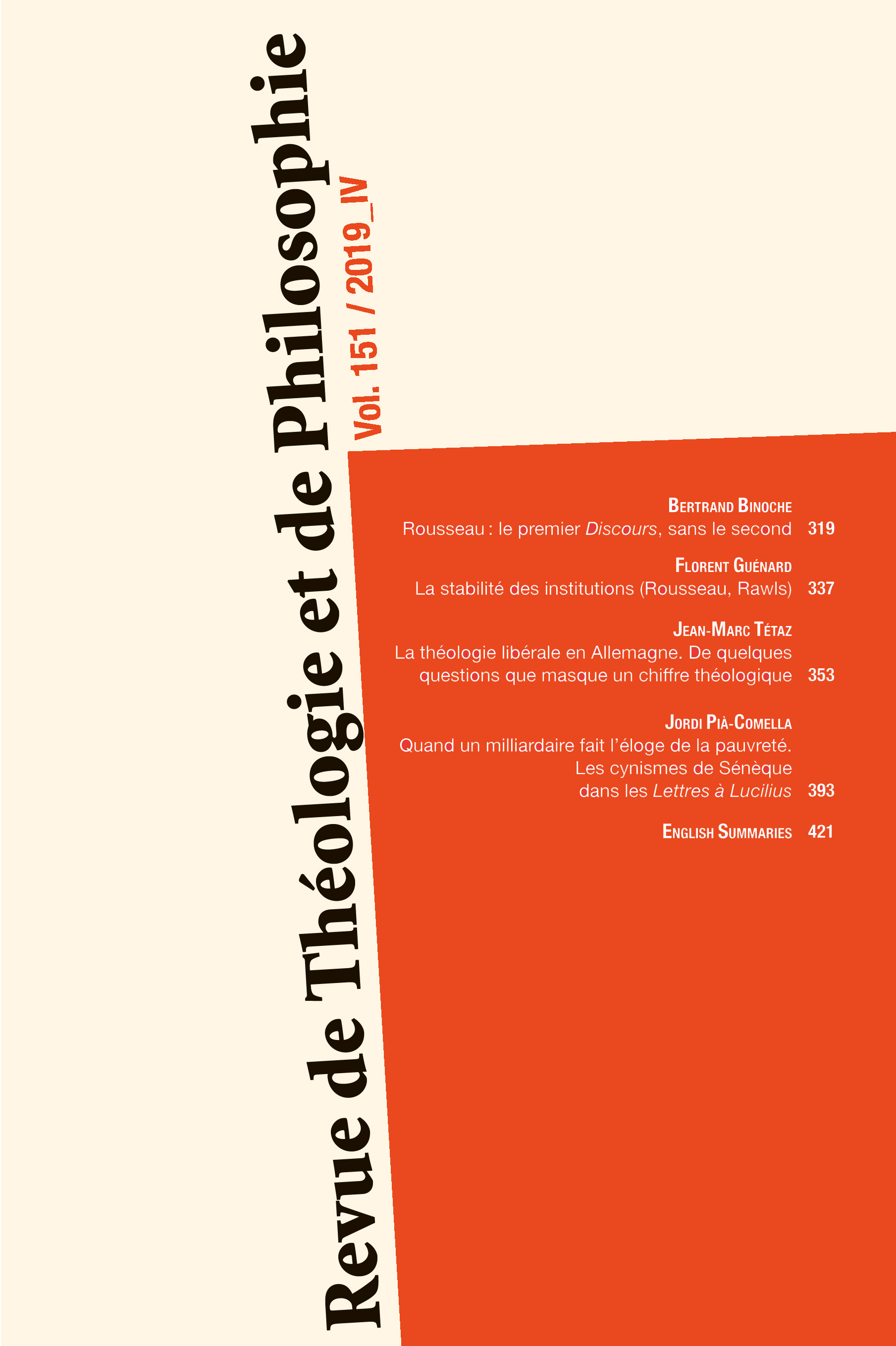The Stability of Institutions
(Rousseau, Rawls)
Abstract
How can we ensure the stability of institutions and, in this way, foster an enduring civil peace? Rawls addressed this classic question in two ways. First, there is the practical response, which seeks to convince those who reject what is viewed as a legitimate political conception, but also to coerce them, including through the use of sanctions. This was Hobbes’ model. The second response tries to give rise, through varying institutions, to a sense of justice among the citizens, so that they themselves will defend these institutions. This is institutional stability for the right kind of reasons, according to Rawls, and Rousseau in this regard. Did Rawls read Rousseau correctly? On the basis of a very different vision of human beings than Hobbes, Rousseau did indeed search for ways to render the republican political institutions stable, but it is not certain that he thought this would be possible, given his sense of the intrinsic frailty of these institutions. Rawls does not appear to have adequately pondered the non-democratic institutional forces which democratic institutions themselves generate.
How to Cite
More Citation Formats
Issue
